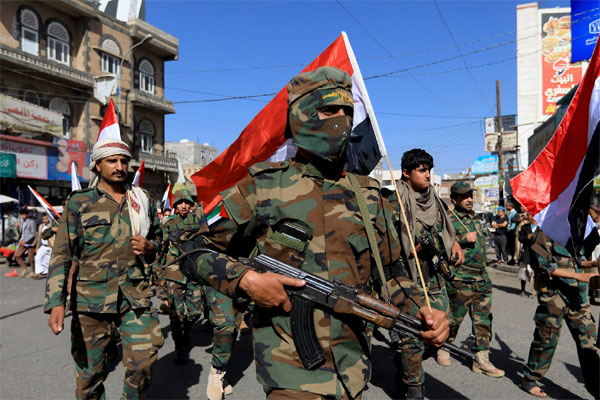Daijiworld Media Network - Aden
Aden, Sep 1: In a fresh wave of detentions, several staff members of the United Nations World Food Program (WFP) were arrested by the Houthi group in Yemen’s capital Sanaa and the Red Sea port city of Hodeidah, multiple security and humanitarian sources confirmed.
A local security official, speaking on condition of anonymity, stated that a WFP employee was detained from the organization's Sanaa headquarters on Sunday. Additional arrests were made at the WFP office in Hodeidah, though exact numbers remain unconfirmed.
A WFP insider in Yemen verified the detentions and added that three security guards stationed at the Sanaa office were also taken into custody when Houthi forces stormed the building. “We have no information about the current status of those still inside the office during the raid,” the source said.

In a concerning development, the source further revealed that the Houthis have also detained several UNICEF staff members for questioning. These individuals are reportedly being held in the basement of the UNICEF headquarters in Sanaa.
Crackdown Follows Israeli Airstrike
The arrests follow rising tensions after an Israeli airstrike on Sanaa last Thursday killed Ahmed al-Rahawi, the Prime Minister of the Houthi-backed government, along with several cabinet ministers. In the aftermath, Houthi intelligence units have intensified internal crackdowns, detaining dozens of individuals—including local humanitarian workers and employees of international aid agencies—on allegations of collaborating with Israel.
Since June 2024, the Houthi group has detained dozens of UN personnel and aid workers, ignoring multiple appeals from the United Nations and global humanitarian organizations demanding their release.
There has been no official statement from the Houthi leadership regarding the latest round of arrests.
Aid Under Siege in a War-Torn Nation
The WFP is a critical lifeline for millions in Yemen, a country devastated by years of civil war. The UN has repeatedly classified the situation in Yemen as one of the worst humanitarian crises in the world, with widespread hunger, displacement, and collapsing healthcare infrastructure.
Yemen’s conflict began in 2014, when the Houthis seized Sanaa, leading to a Saudi-led military intervention in 2015 in support of the internationally recognized government. The war has since fractured the nation and complicated access for humanitarian organizations.
As arrests of aid workers continue, concerns are mounting over the safety of humanitarian staff and the future of critical relief efforts in a country where millions remain dependent on international assistance.